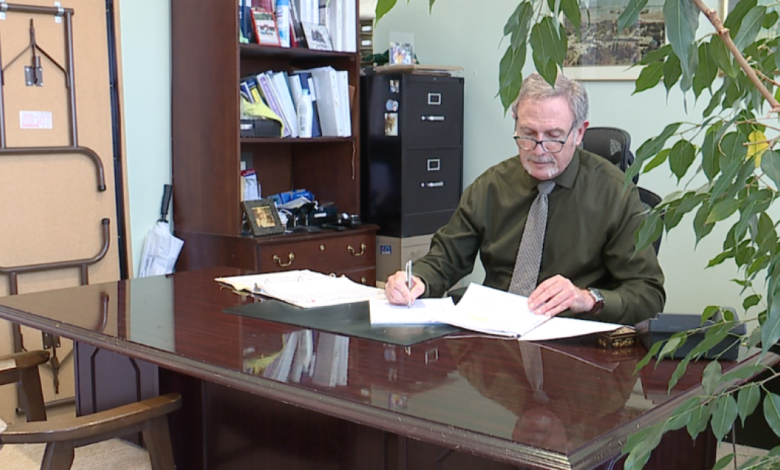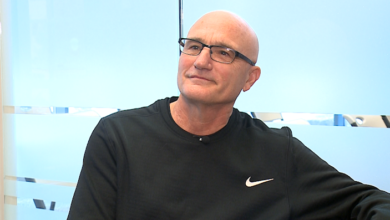
CINCINNATI — Scott Knox has found himself an accidental LGBTQ activist, in the right role, at the right place, at the right time to help make change.
"I am not by nature an activist," he said. "I feel like I was pushed into it because I was in a position to see what was going on."
His legal career started in labor law and asbestos litigation, until the AIDS epidemic exposed a cruel lack of resources and representation.
"I had people coming to me since I was active in the gay community, saying, 'I have a friend whose partner is in the hospital, they have no paperwork, their family is going to swoop in and move him and take all his stuff and disrespect this relationship,' and back then I couldn't think of anyone to refer them to," Knox said. "Out of necessity, I just started doing it."
Knox started doing estate planning and discrimination cases and working with many LGBTQ clients.
Scott Knox
"It was really kind of like my activism because I couldn't think of anyone else to do, so if not me, then who?" he said.
Perhaps his biggest fight would still be on the horizon, a fight that would forever impact Cincinnati's perception in the social justice, business and LGBTQ communities.
In 1992, the City of Cincinnati adopted a human rights ordinance which included sexual orientation. The backlash came quickly, with city voters approving a measure to remove sexual orientation from the ordinance in 1993.
"It sure felt a lot like your community doesn’t want you here," Knox said.
A federal judge ruled the measure unconstitutional. But then it got worse for the Cincinnati LGBTQ community.
Cincinnati voters approved Article XII, codifying that "no special class status may be granted based upon sexual orientation, conduct, or relationships."
"We were the only city in the country that had a regulation that said City Council was prohibited from passing any law that would protect LGBTQ people from discrimination," Knox said. "It said this one set of people had no access to the government."
Boycotts and lawsuits followed these actions. Even Pride events and parades ceased in the city for five years.
"The community was so demoralized," Knox said. "You'd walk down the street and look at people and think, 'Really? You thought that I should able to be fired for being gay?' And it took years before we could get a group together that thought it would be worthwhile that there was a chance we could repeal it."
Knox said the group called themselves "The Prayer Group," because they thought their chances were so slim to overturn Article XII.
He describes himself as one of the "worker bees," many who made up what would become the Citizens to Restore Fairness. He credits dedicated volunteers, including lots of straight allies, and boots-on-the-ground, in-person campaigning for the repeal's ultimate success.
"We went door to door and asked people, ‘Do you think someone should be fired if they’re doing a good job just because they’re gay or lesbian?‘ and uniformly, they said no," he said. "Overwhelmingly, people are fair."
Cincinnati voters repealed Article XII in 2004.

Scott Knox
That's a large part of why Knox says he remains "Pollyanna" about people and ongoing LGBTQ issues, mainly the current fight for transgender acceptance and rights. That, and the amount of change in the city of Cincinnati since the rights fights of the early 1990s.
"It's a sea change," he said. "It's nice to see the Pride flags up on the streets, it's encouraging."
Even professionally, Knox said, things are better and he's more optimistic.
"A lot of my LGBTQ issues now are estate planning and family issues, which is kind of fun compared to the past," Knox said. "It's more 'happy law.'"
His work to right wrongs against the local LGBTQ community makes Scott Knox one of the Tri-State's Points of Pride.
WCPO is committed to telling the stories of LGBTQ+ individuals in the Tri-State year-round. If you know someone who should be recognized as a Point of Pride, send an email to [email protected] or [email protected]








